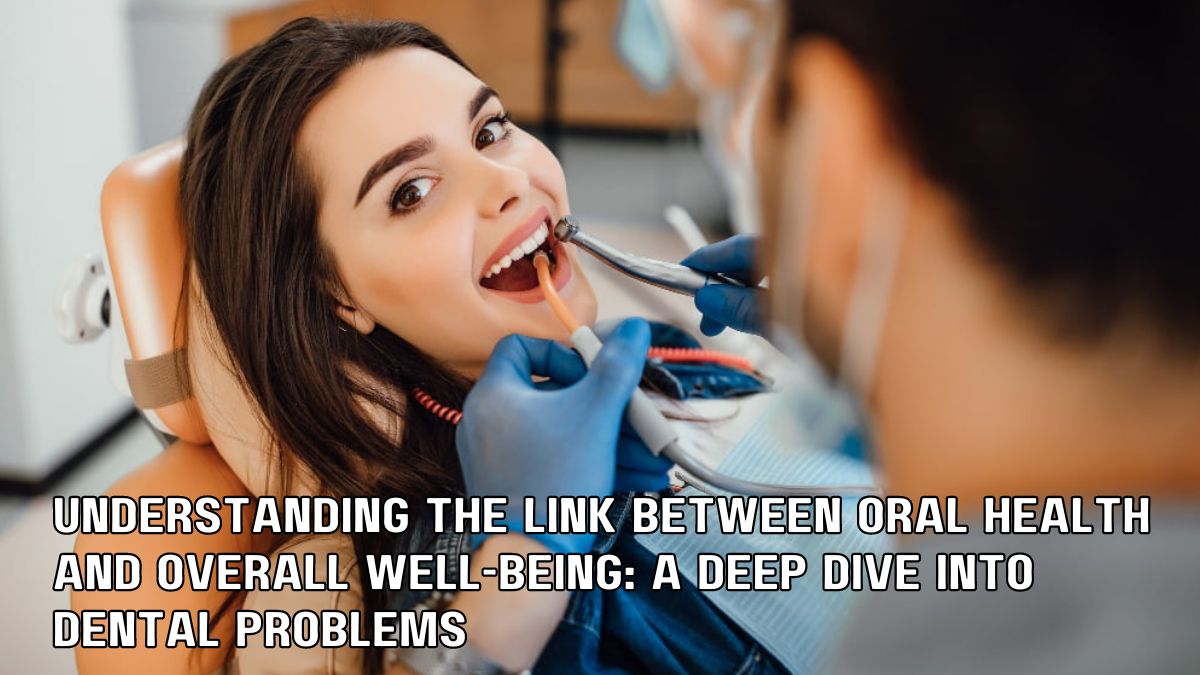Introduction:
Your oral health is not just about having a bright smile and fresh breath; it plays a crucial role in your overall well-being. A growing body of research has shown that there’s a profound connection between your oral health and various systemic health issues. In this blog, we’ll take a deep dive into the link between oral health and overall well-being, exploring dental problems that can impact your physical and mental health.
The Mouth-Body Connection:
Your mouth is a gateway to your body, and the health of your mouth can have a significant impact on your entire system. Several dental problems can influence your overall well-being:
Gum Disease and Heart Health:
- Research suggests a strong connection between gum disease (periodontitis) and heart disease.
- Inflammation in the gums can contribute to systemic inflammation, which is a risk factor for cardiovascular problems.
Oral Infections and Diabetes:
- People with uncontrolled diabetes are more prone to oral infections.
- Oral infections, in turn, can make it harder to manage blood sugar levels.
Tooth Decay and Respiratory Issues:
- Poor oral hygiene can lead to tooth decay and gum infections.
- These infections can introduce harmful bacteria into the respiratory system, potentially exacerbating conditions like pneumonia.
Gum Disease and Pregnancy Complications:
- Pregnant women with gum disease may be at a higher risk of preterm birth and low birth weight.
- Hormonal changes during pregnancy can make gums more susceptible to infection.
Oral Health and Mental Health:
- Oral health issues can take a toll on mental well-being, leading to feelings of embarrassment, low self-esteem, and even depression or anxiety.

Prevention and Maintenance:
To maintain good oral health and support overall well-being, consider the following steps:
- Regular Dental Check-ups: Schedule regular dental check-ups and cleanings with your dentist to catch and address problems early.
- Daily Oral Hygiene: Brush your teeth at least twice a day and floss once a day to remove plaque and prevent gum disease and cavities.
- Balanced Diet: Eat a balanced diet rich in fruits, vegetables, lean proteins, and whole grains. Limit sugary and acidic foods and drinks.
- Stay Hydrated: Drinking plenty of water helps maintain a moist mouth and reduces the risk of tooth decay.
- Avoid Tobacco and Excessive Alcohol: Smoking and heavy alcohol consumption are risk factors for various oral and systemic health issues.

Conclusion:
Your oral health is a vital component of your overall well-being. Neglecting dental problems can have far-reaching consequences on your systemic health, from heart disease to diabetes and more. By understanding the mouth-body connection and taking proactive steps to maintain good oral hygiene, you can not only enjoy a radiant smile but also support your overall health and well-being. Don’t underestimate the importance of a healthy mouth – it’s your gateway to a healthier life.












